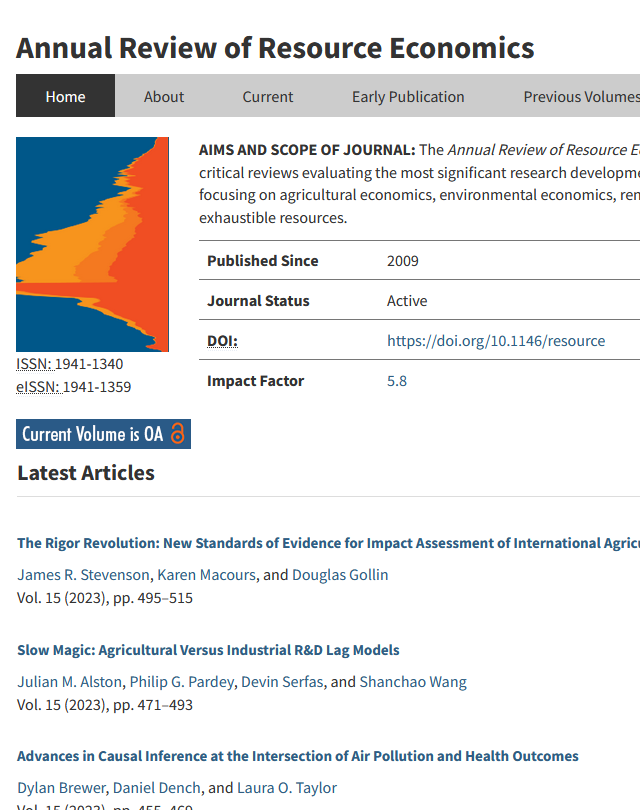电力与发展的经济学》:为增长和不断变化的气候制定规划
IF 8.4
2区 经济学
Q1 AGRICULTURAL ECONOMICS & POLICY
Annual Review of Resource Economics
Pub Date : 2024-08-28
DOI:10.1146/annurev-resource-112223-094752
引用次数: 0
摘要
过去几十年来,许多中低收入国家在电气化方面取得了巨大进步。电力普及率的提高使越来越多的实证证据证明了电气化的影响。本文对之前有关电气化影响的综述进行了补充,探讨了发展中国家电力部门仍然面临的几大挑战--电力服务经济效应最大化的障碍、收回公用事业成本的障碍、预测未来电力需求的困难、未来采用气候减缓技术的不确定性--以及应对这些挑战的现有微观经济因果证据。我们介绍了随机实验如何补充了准实验证据,然后强调了现有文献中仍存在的一些空白。具体而言,我们强调了发展中国家电力部门的气候适应问题,这仍然是电气化促进发展的讨论和融资方面的一个重要空白。我们利用南亚的尼泊尔和巴基斯坦--这两个地区最近都取得了巨大的电气化成果,同时也是最易受气候变化影响的地区之一--的案例研究,说明在电力部门适应气候变化方面需要开展更多工作。最后,我们将联系近期关于气候适应融资的讨论。本文章由计算机程序翻译,如有差异,请以英文原文为准。
The Economics of Electricity and Development: Planning for Growth and a Changing Climate
Many low- and middle-income countries have made tremendous gains in electrification over the past few decades. These improvements in electricity access have enabled a growing body of empirical evidence on its impacts. This article complements prior reviews on the impacts of electrification by addressing several major remaining challenges faced by the electricity sector in developing countries—impediments to maximizing electricity services᾽ economic effects, obstacles to recovering utility costs, difficulties in forecasting future electricity demand, and uncertainty regarding the future adoption of climate-mitigating technologies—and the existing micro economic causal evidence addressing those challenges. We describe how randomized experiments have complemented the quasi-experimental evidence and then highlight some remaining gaps in the existing literature. Specifically, we highlight climate adaptation within the electricity sector in developing countries, which remains a crucial gap in both the discussion on and financing of electrification for development. We use case studies of Nepal and Pakistan in South Asia—a region that both recently experienced great electrification gains and is among the most vulnerable to climate change—to illustrate the need for additional work on adaptation in the electricity sector. We conclude by linking to recent discussions on climate adaptation finance.
求助全文
通过发布文献求助,成功后即可免费获取论文全文。
去求助
来源期刊

Annual Review of Resource Economics
AGRICULTURAL ECONOMICS & POLICY-
CiteScore
9.40
自引率
0.00%
发文量
34
期刊介绍:
The Annual Review of Resource Economics provides authoritative critical reviews evaluating the most significant research developments in resource economics, focusing on agricultural economics, environmental economics, renewable resources, and exhaustible resources.
 求助内容:
求助内容: 应助结果提醒方式:
应助结果提醒方式:


